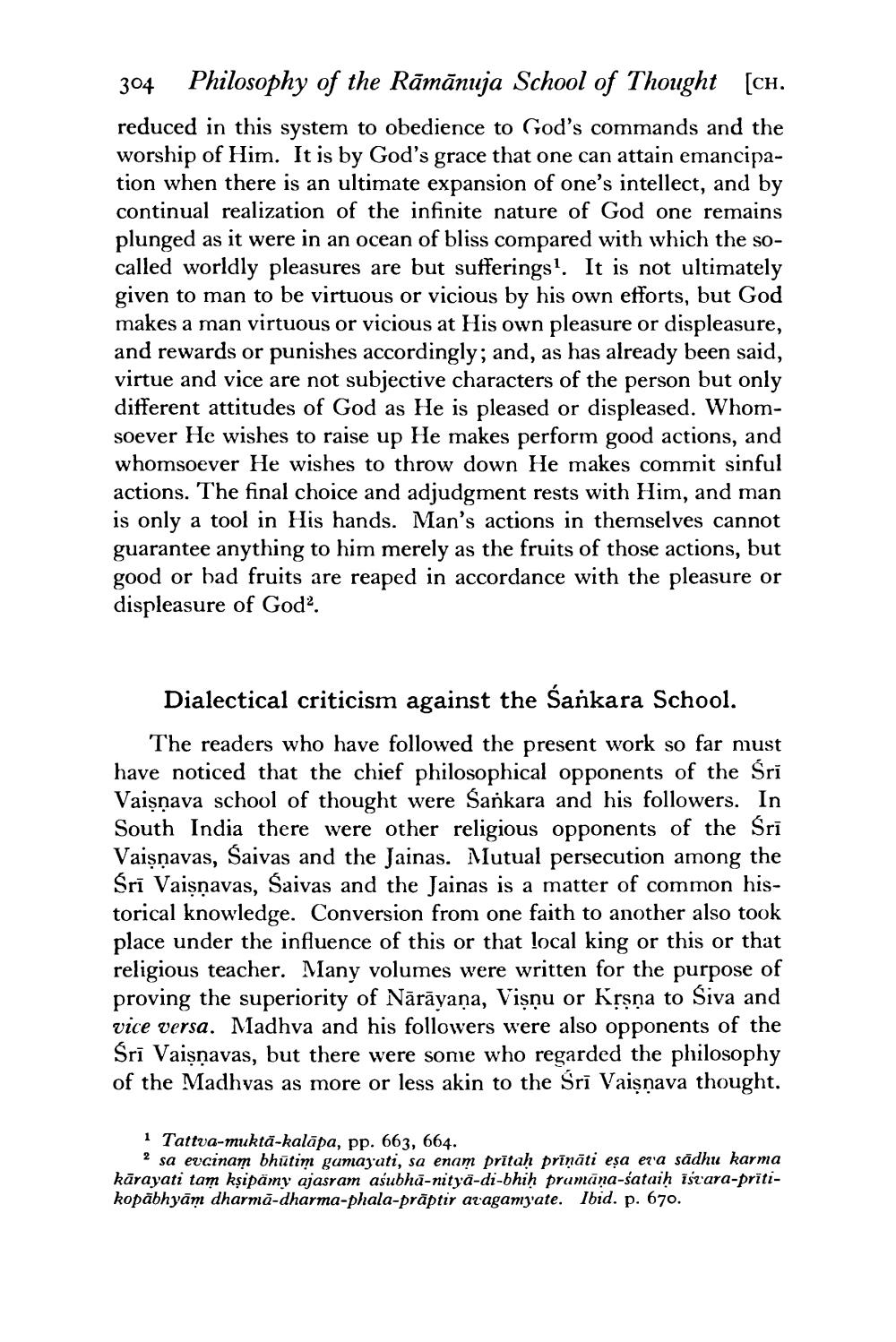________________
304 Philosophy of the Rāmānuja School of Thought [ch. reduced in this system to obedience to God's commands and the worship of Him. It is by God's grace that one can attain emancipation when there is an ultimate expansion of one's intellect, and by continual realization of the infinite nature of God one remains plunged as it were in an ocean of bliss compared with which the socalled worldly pleasures are but sufferings?. It is not ultimately given to man to be virtuous or vicious by his own efforts, but God makes a man virtuous or vicious at His own pleasure or displeasure, and rewards or punishes accordingly; and, as has already been said, virtue and vice are not subjective characters of the person but only different attitudes of God as He is pleased or displeased. Whomsoever He wishes to raise up He makes perform good actions, and whomsoever He wishes to throw down He makes commit sinful actions. The final choice and adjudgment rests with Him, and man is only a tool in His hands. Man's actions in themselves cannot guarantee anything to him merely as the fruits of those actions, but good or bad fruits are reaped in accordance with the pleasure or displeasure of God?.
Dialectical criticism against the Sankara School.
The readers who have followed the present work so far must have noticed that the chief philosophical opponents of the Śrī Vaisnava school of thought were Sankara and his followers. In South India there were other religious opponents of the Sri Vaisnavas, Saivas and the Jainas. Mutual persecution among the Sri Vaisnavas, Saivas and the Jainas is a matter of common historical knowledge. Conversion from one faith to another also took place under the influence of this or that local king or this or that religious teacher. Many volumes were written for the purpose of proving the superiority of Nārāyana, Visņu or Krsna to Siva and vice versa. Madhva and his followers were also opponents of the Sri Vaisnavas, but there were some who regarded the philosophy of the Madhvas as more or less akin to the Sri Vaisnava thought.
1 Tattva-mukta-kalapa, pp. 663, 664.
2 sa evcinam bhūtim gumajati, sa enam prītah prīņāti eșa era sådhu karma kārayati tam ksipämy ajasram aśubhā-nityā-di-bhiḥ prumāņa-bataih istara-pritikopābhyām dharma-dharma-phala-prāptir araganjate. Ibid. p. 670.




